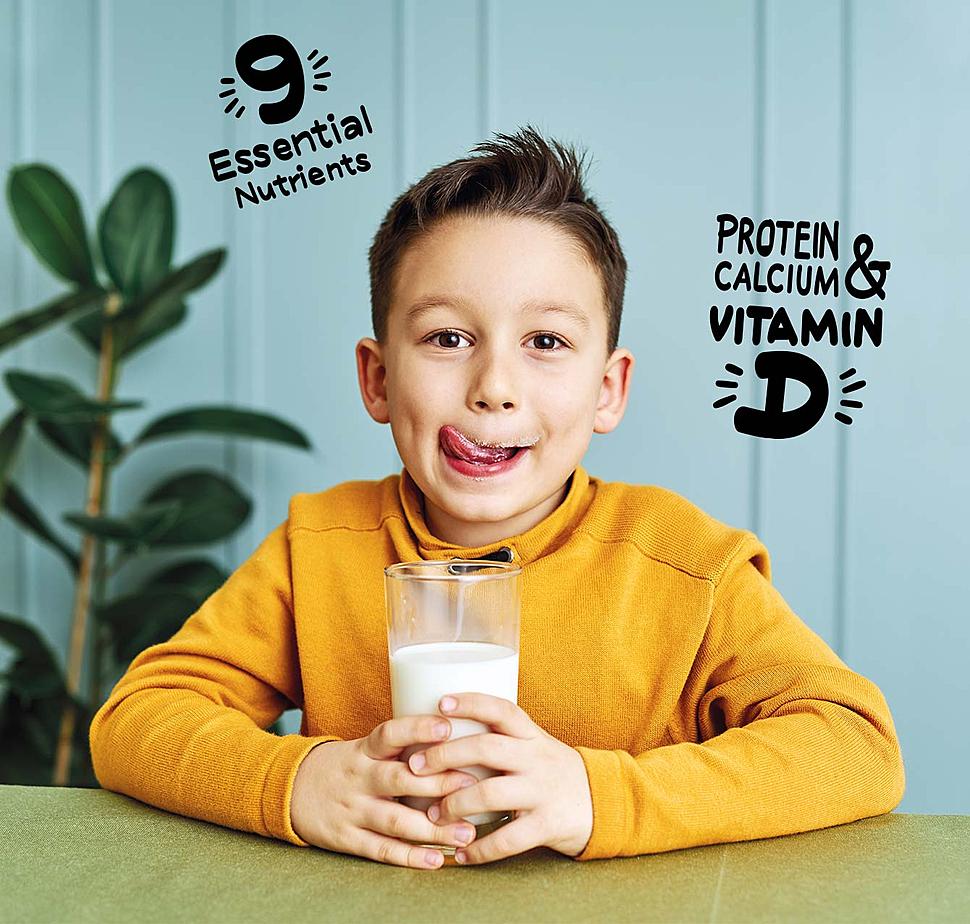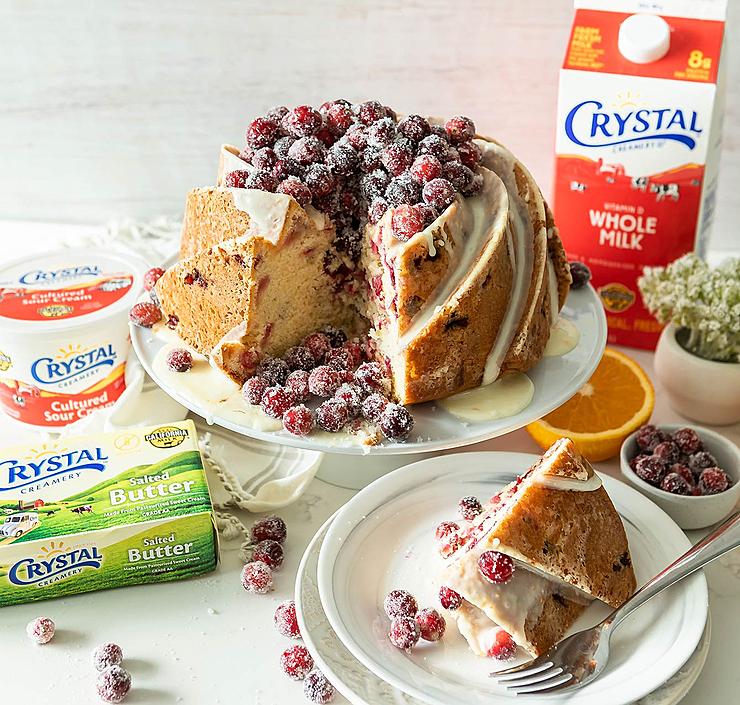
Grow Up Strong with Milk
Milk is a perfect, kid-friendly place to ensure kids get the nutrients they need to stay active and healthy, from B-vitamins to protein.
Being a kid is hard work, especially during the growth spurt years. Every new bone, brain cell, and muscle fiber takes a certain amount of nutrients to build, and those nutrients have to come from somewhere. So how do you make sure your kids are getting enough of what they need when all they want is chicken nuggets and French fries?
Milk is a perfect, kid-friendly place to start. It contains a wide variety of nutrients growing kids need to stay active and healthy, from B-vitamins to protein. In fact, scientific evidence suggests that drinking milk during preschool years is associated with increased linear growth, aka height. This doesn’t mean that drinking a glass of milk a day will magically help kids grow up to be 7 feet tall. (Genetics still have the final say in that department.) But it’s a fantastic source for the essential nutrients they need to keep growing.
What makes a nutrient essential?
Based on the name, “essential” nutrients might sound extra-important, like the VIPs of your diet. And they are, sort of. But being “essential” actually has to do with whether or not your body can make its own supply of that nutrient. If it can’t, it’s essential that you get enough of that nutrient from your diet.
The human body can make some nutrients all by itself. Take Vitamin D for example: As long as you get enough sunshine, your cells will produce all the Vitamin D they need. But most nutrients can’t be made from scratch. Fat, protein, carbohydrates, minerals like calcium and potassium, and most vitamins all have to come from your diet, which makes them essential nutrients. Water is technically on this list, too. Every single bodily function uses water, but you can’t make your own. It doesn’t get more essential than that.
Milk’s 13 Essential Nutrients
Cow’s milk is loaded with essential nutrients. Every glass contains 13 of the nutrients growing kids need most:
- Calcium
- Protein
- Vitamin D
- Phosphorus
- Vitamin A
- Riboflavin (vitamin B2)
- Vitamin B12
- Pantothenic Acid
- Niacin (vitamin B3)
- Zinc
- Selenium
- Iodine
- Potassium
There’s more to milk nutrition than vitamins and protein. It also has plenty of fat and carbs for energy— and since milk naturally contains a lot of water, you’re getting your hydration, too.
This specific combination of essential nutrients makes milk unique, at least nutrition-wise. It’s not just high in vitamins or minerals or protein—it’s all of the above. For growing kids who might not love veggies just yet, that’s hard to beat.
Chocolate Milk: More Than Just Dessert
Everyone knows kids love chocolate milk, but did you know that it’s been scientifically proven? According to multiple studies, students drink less milk overall when chocolate milk is taken off school lunch menus. In one school, banning chocolate milk was so unpopular with students that the staff even worried about protests.
This makes a lot of sense—even the protests. Chocolate milk is sweet and delicious, which always scores major points. Taking away a favorite lunchtime treat will make a lot of kids very angry and put others off milk entirely. Considering that children, on average, aren't getting the nutrition they need to thrive — and that many of the essential nutrients in milk are difficult to find in other foods, let alone all in one place — this is a big deal.
But chocolate milk is more than just a sweet treat. The only difference between chocolate milk and plain milk is that one contains cocoa and sugar—all the other nutrients are still there, and in the same quantities. Plus, the extra sugar is actually a good thing for athletes (or active kids). It adds carbs, calories, and electrolytes, all of which make chocolate milk a great post-workout recovery drink. In other words, unlike candy or cookies, a glass of chocolate milk is a sweet treat with actual nutritional value. Everyone deserves a treat now and then, and if that treat comes with plenty of vitamins, minerals, and protein, even better.
Strong Inside
The powerful proteins in milk provide a combination of nutrients found nowhere else. Learn more about how milk is the most natural and simple way to make us stronger from the inside out. Get Protein Tips and More
Sources
- Growth and Development of Preschool Children (12–60 Months): A Review of the Effect of Dairy Intake (Nutrients, 2020)
- Milk Options Observation (MOO): A Mixed-Methods Study of Chocolate Milk Removal on Beverage Consumption and Student/Staff Behaviors in a Rural Elementary School (Journal of School Nursing, 2017)
- Impact of the removal of chocolate milk from school milk programs for children in Saskatoon, Canada (Applied Physiology, Nutrition, and Metabolism, 2015)
- Chocolate Milk Consequences: A Pilot Study Evaluating the Consequences of Banning Chocolate Milk in School Cafeterias (PLOS One, 2014)
- Effect of Removing Chocolate Milk on Milk and Nutrient Intake Among Urban Secondary School Students (Preventing Chronic Disease, 2020)




